He highlighted listening, dialoguing, and cooperating as important virtues “at this moment in time, in both church and society.”
“When we think of how the Bishop relates to his Priests and to his Religious in his Diocese, is accompaniment the first word that it brings to mind?” the Apostolic Nuncio posed, and continued, “The Pope is not suggesting that the Bishop ceases to be the Bishop, but he is asking that the Bishop exercises his office with this attitude always to the fore.”
According to Archbishop Horgan, “The bishop must do all he can to accompany his Priests and Seminarians, which necessitates listening to them and being available within the limits of the possible to hear their concerns, even if with the help of an Episcopal Vicar for Clergy. Priests must not feel abandoned or neglected by their bishop.”
Earlier, at the beginning of his November 15 address, Archbishop Horgan had assured SSS-CBC members of Pope Francis’ prayers, “great concern and closeness”.
“In fact, frequently during his audiences over the past few months, he (Pope Francis) has asked Christians to pray for Sudan. As recently as last Sunday (November 10), following the Angelus Prayer, he repeated this plea. I am sure that many are responding to the Pope's plea,” the representative of the Holy Father in South Sudan said.
(Story continues below)
He assured the Catholic Bishops of Sudan and South Sudan of his own spiritual solidarity, saying, “The Nunciature in Juba prays for you and follows with great concern the developments in your local churches and in the country.”
“Since my arrival in Juba, I have been struck by how the bishops have welcomed the decision of the Holy Father to appoint a resident Nuncio. I am personally very grateful for the many expressions of welcome and support I have received from the local church, beginning with the lively and colorful reception at Juba Airport,” the Vatican diplomat said, recalling the events of August 28.
Meanwhile, in his speech at the beginning of the SSS-CBC Plenary Assembly, the President of the Conference that brings together Catholic Bishops in Sudan and South Sudan recognized Sudan’s challenging pastoral situation amid violent conflicts since April 2023.
“We thank the Lord for having brought our brothers from the North,” Stephen Ameyu Martin Cardinal Mulla said, referring to the Local Ordinary of Khartoum Catholic Archdiocese, Archbishop Michael Didi and his Auxiliary, Bishop Daniel Kur Adwok, and Bishop Yunan Tombe Trille of the Catholic Diocese of El Obeid.
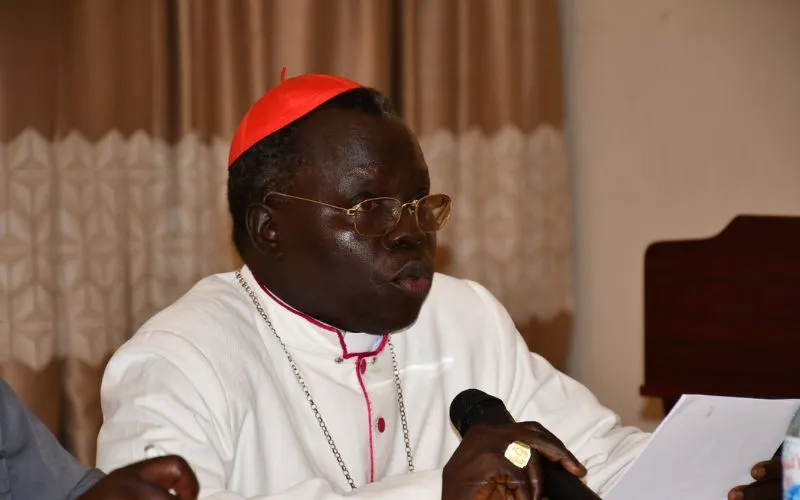 Stephen Ameyu Martin Cardinal Mulla. Credit: Ginaba Lino Michael/South Sudan/Juba
Stephen Ameyu Martin Cardinal Mulla. Credit: Ginaba Lino Michael/South Sudan/Juba
Cardinal Ameyu added, “We thank the Lord for His protection for these three servants of His who live and move in the midst of war and bombs, but they take care of their own sheep in spite all this.”
He described the presence of Catholic Bishops among the people of God in the two neighbouring countries as “always a beacon of hope.”
“The effort made by each Bishop and Priest in your respective Dioceses or institutions are deeply appreciated. Your unwavering service, especially in the face of war and challenges, reflects the profound love of Christ for His people,” the Cardinal told SSS-CBC members on November 15, the first of their five-day Plenary Assembly.
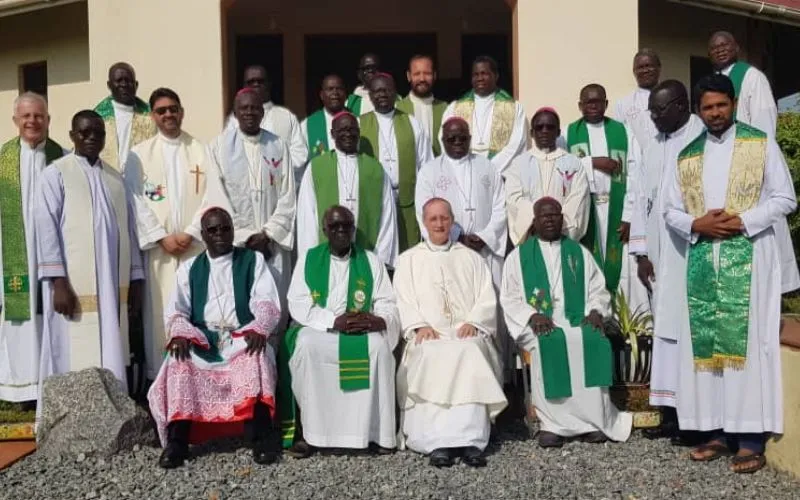 Credit: Ginaba Lino Michael/South Sudan/Juba
Credit: Ginaba Lino Michael/South Sudan/Juba
“As we come together in this conference, may the bonds of communion among us strengthen our collective mission,” said the South Sudanese Cardinal created alongside two other Africans during the 30 September 2023 Consistory in Rome.
He added, “Let us work for the dignity of the persons we serve. Let us pray always for that commitment that the Lord continues to give us. May this conference be a fruitful time for reflection, collaboration, and to renew the zeal of the work ahead.”
ACI Africa was founded in 2019. We provide free, up-to-the-minute news affecting the Catholic Church in Africa, giving particular emphasis to the words of the Holy Father and happenings of the Holy See, to any person with access to the internet. ACI Africa is proud to offer free access to its news items to Catholic dioceses, parishes, and websites, in order to increase awareness of the activities of the universal Church and to foster a sense of Catholic thought and culture in the life of every Catholic.
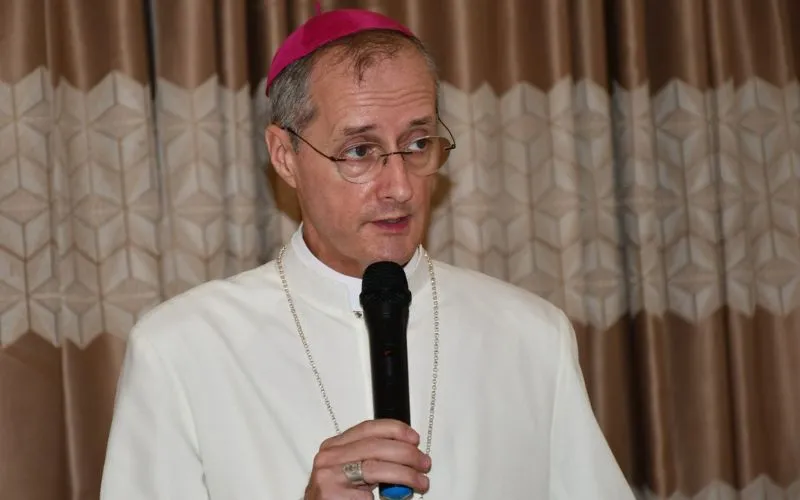 Archbishop Séamus Patrick Horgan. Credit: Ginaba Lino Michael/South Sudan/Juba
Archbishop Séamus Patrick Horgan. Credit: Ginaba Lino Michael/South Sudan/Juba


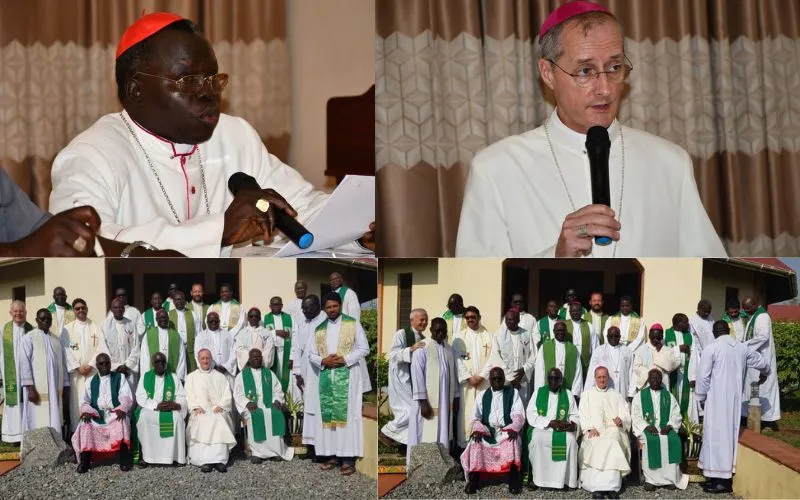
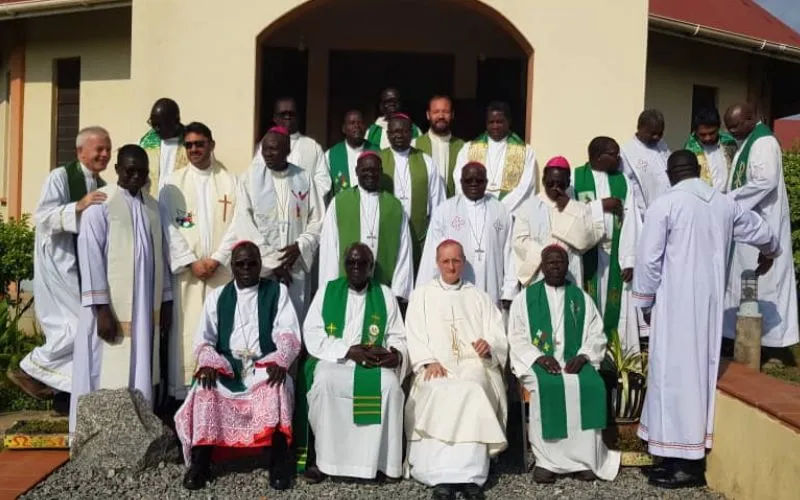 Credit: Ginaba Lino Michael/South Sudan/Juba
Credit: Ginaba Lino Michael/South Sudan/Juba
 Stephen Ameyu Martin Cardinal Mulla. Credit: Ginaba Lino Michael/South Sudan/Juba
Stephen Ameyu Martin Cardinal Mulla. Credit: Ginaba Lino Michael/South Sudan/Juba Credit: Ginaba Lino Michael/South Sudan/Juba
Credit: Ginaba Lino Michael/South Sudan/Juba


